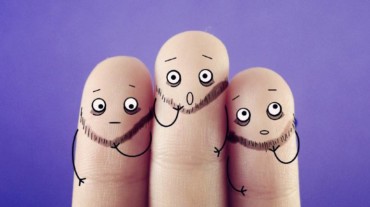
Many women usually have few fine and light coloured hair on their chin. This is normal and is not a cause for concern. But getting more than just a few hairs that are coarser, longer and darker is a sign of a medical condition known as hirsutism.
Hirsutism affects five to 10% of women of childbearing age. It can cause dark, coarse hair growth on the chin, upper lip, face, chest, abdomen, and back. Hirsutism can be emotionally distressing, cause low self-esteem, and may make women feel unfeminine and embarrassed.
But what caused hirsutism?
Both men and women produce androgens or male hormones. Excessive facial hair in women can be caused by an increase in androgen production, increased sensitivity or imbalance between male and female type sex hormones. Most women develop facial hair as they get older, especially after menopause.
Though the exact cause of excessive chin hair is not always identified, it can also be caused by several medical conditions like PCOS (polycystic ovarian syndrome), Cushing’s syndrome and certain medications. Other causes include abnormalities of the pituitary, thyroid and adrenal glands.
Also, watch:
So, should you be worried?
You should consult a dermatologist if there is an increased growth of facial hair over a short period of time, say six to 12 months. Also, other symptoms like a change in voice, acne, irregular menstrual cycle, thinning of scalp hair, obesity and/or diabetes also need to be evaluated by a doctor.
How can your dermatologist help?
A dermatologist can assess your excessive facial hair. A detailed history and examination helps to determine if you need to be screened for PCOS or other medical conditions. They also help direct appropriate diagnostic testing and management. Tests might help to determine whether elevated levels or imbalance of hormones are the cause. Ultrasound examination of the abdomen/pelvis and rarely CT scan or MRI may also be required for evaluation.
So, how can you treat excessive facial hair?
Treatment of excessive facial hair is often with a combination of approaches which include oral contraceptive pills and antiandrogen medications to lower the level or block the action of androgen on hair follicles.
Weight reduction, dietary modification, and exercise is advised for women who are obese or have PCOS. In cases where there is an underlying hormonal disorder, the treatment of the underlying disease is required. Prescription creams are also available in the market, which when applied directly to the affected area can help slow new hair growth.

Medical treatment inhibits hair growth without removing hair. Therefore, it can be combined with mechanical methods of hair reduction like lasers or electrolysis. Some women use shaving, waxing, bleaching, depilatory creams to reduce the appearance of facial hair but the risk and benefit of all the modalities need to be carefully considered.